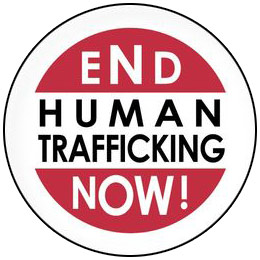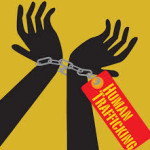
Thai authorities intercepted 76 migrants, including six members of Myanmar’s ethnic Rohingya minority, while they were being transported to Malaysia in what is believed to have been a trafficking operation, as a Ministry of Foreign Affairs spokesperson detailed the Kingdom’s anti-trafficking enforcement gains in a press briefing last week.
The migrants were detained after Thai law enforcement discovered them while inspecting a train traveling through the southern province of Nakhorn Si Thammarat. They were on their way to Malaysia in search of work, according to Police Colonel Anuchon Chamat, deputy commander of Nakhorn Si Thammarat Provincial Police, who spoke with news agencies.
“They were sitting with Thai passengers and upon inspection by authorities were found to have no travel documents,” said Anuchon. “It seems they wanted to go to Malaysia for work and had boarded the train at different locations along the route. It is difficult to say whether traffickers are among them.”
If the migrants are established as trafficking victims, they will be sent to government-run shelters until they can be repatriated. If they qualify, they will be allowed to stay in Thailand and work legally until their fate can be determined.
Nonetheless, the discovery is evidence that trafficking gangs are still operating and the pipeline of people smuggling from Myanmar to Malaysia is still quite active. In January, Thai police detained of a group of 98 suspected Rohingya trafficking victims, including dozens of children, who were being transported in several pickup trucks through southern Thailand.
Countless numbers of Rohingya and some others have been migrating illegally from Myanmar in recent years, and particularly since 2012 when ethnic violence erupted in Myanmar. The greatest numbers of Rohingya tend to leave Myanmar during the cooler winter months when the Andaman Sea is calm and traveling by makeshift boats is slightly easier.
The illegal migration means most Rohingya are transported by people smugglers, but many are also victims of human trafficking. Those who are trafficked end up as forced laborers or in debt bondage in Thailand, Malaysia and Indonesia. Countries in the region have called on Myanmar to solve the Rohingya issue so that their exodus will cease.
During a press briefing last week, Deputy Minister of Foreign Affairs Don Pramudwinai, said that expanded investigations into 280 human trafficking cases reported in 2014 led authorities to two networks of sex trade traffickers, three networks of forced labor, and one for smuggling Rohingya and laundering money.
Between January 1 and February 13, Don said, Thai authorities arrested 21 defendants in 18 trafficking cases, in a clear signal that Thailand has taken seriously calls by the United States to improve enforcement against traffickers. Some government officials and members of the police force had also been dismissed because of suspected links to traffickers. Authorities had also begun official investigation into cases pertaining to the Indonesian island of Benjina, with three persons already arrested on human trafficking charges, and ongoing probes continue into other suspects.
Also, 105 trafficking victims were transferred to the care of the Ministry of Social Development and Human Security (MSDH) between January and February.
The deputy foreign minister also highlighted the recently-approved Amendment to the Anti-Human Trafficking Act, which imposes harsher penalties on human traffickers, improves inspections and better protects witnesses. A new Fisheries Act and a key piece of labor regulation will also become effective this month to improve official oversight and monitoring and surveillance system.
For more information and updates on Thailand’s policy and actions against human trafficking, visit www.thaianti-




